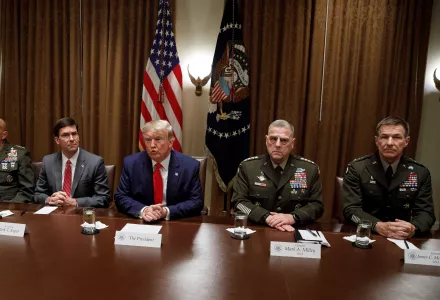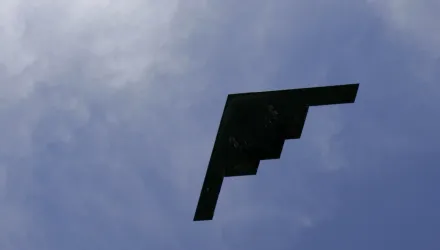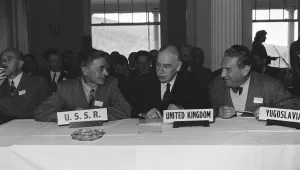International Security is America's leading peer-reviewed journal of security affairs.

Summary
The U.S. military’s prevailing norms of military professionalism are poorly suited to meet today’s civil-military challenges. These norms, based on Samuel Huntington's objective civilian control model, argue that the military should operate in a sphere separate from the civilian domain of policymaking and decisions about the use of force. Yet, these norms also undermine the military’s nonpartisan and apolitical ethos, weaken civilian leaders' control of military activity, and undercut the country’s strategic effectiveness in armed conflict.
Risa Brooks, "Paradoxes of Professionalism: Rethinking Civil-Military Relations in the United States," International Security, Vol. 44, No. 4 (Spring 2020), pp. 7-44.





